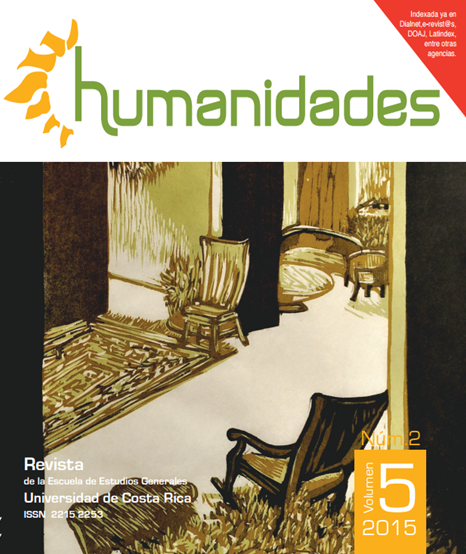Abstract
The research seeks recognition of the philosophical contributions of Moses Vincenzi Pacheco. Specifically, the article analyzes the vincenzianos thesis of nonexistence of change and contradiction as a methodological tool for the study of the notions of change and movement. Vincenzi manages to excel at the end of his reflection to a rebellious look conception of sync and provides an outline to a philosophy of infinitism. Moses Vincenci, philosopher reckless witness to nothing and eternity, the most important Central American philosopher of the early decades of the twentieth century.
References
Bonilla, Abelardo. (1967). Historia de la literatura costarricense. San José: Editorial Costa Rica.
Consejo de Redacción. (1964). “Crónica”. Revista de Filosofía, 4 (14). San José: Universidad de Costa Rica.
Cordero, Rodrigo. (1975). Moisés Vincenzi. San José: Ediciones Ministerio de Cultura Juventud y Deportes.
Láscaris, Constantino. (1964). Desarrollo de las ideas filosóficas en Costa Rica. San José: Editorial Costa Rica.
Mata, Enrique. (2010). “Un pensador actuante ante la crisis moral generada por el hombre máquina”. En Revista Académica, 47. San José: Universidad Autónoma de Centroamérica.
Rubio, Víctor. (1941). Estudio de un humanista: Vincenzi. San Salvador: Nueva tribuna.
Pacheco, Napoleón. (1920). Filosofía de la Crítica, M. Vincenzi-Su personalidad crítica. San José: Imprenta Greñas.
Piedra, Rubén. (1971). Gnoseología de Moisés Vincenzi. En Revista de Filosofía, 29, pp. 249-254. San José: Universidad de Costa Rica.
Vincenzi, Moisés. (1920). Crítica Trascendental. San José: María V. de Lines.
Vincenzi, M. (1921). Diálogos Filosóficos. San José: Centro Intelectual.
Vincenzi, Moisés (1927). América Libertada. San José: Trejos.
Vincenzi, Moisés. (1928). Principios de la crítica filosófica. París: Le Livre libre.
Vincenzi, Moisés. (1928). Mi segunda dimensión. San José: Trejos.


